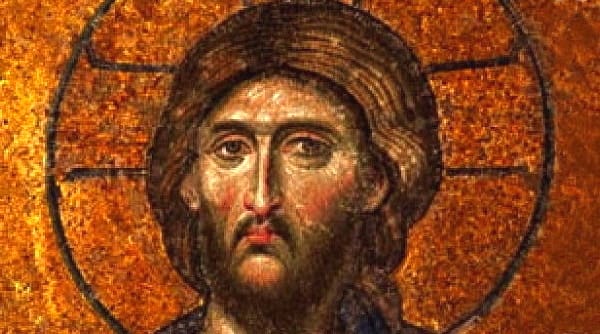“For Jesus Christ reigns over the minds of individuals by his teachings, in their hearts by his love, in each one’s life by the living according to his law and the imitating of his example.” – Pope Pius XI
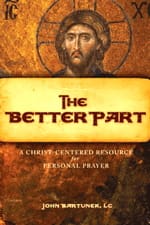 Luke 3:1-6: In the fifteenth year of Tiberius Caesar’s reign, when Pontius Pilate was governor of Judaea, Herod tetrarch of Galilee, his brother Philip tetrarch of the lands of Ituraea and Trachonitis, Lysanias tetrarch of Abilene, during the pontificate of Annas and Caiaphas the word of God came to John son of Zechariah, in the wilderness. He went through the whole Jordan district proclaiming a baptism of repentance for the forgiveness of sins, as it is written in the book of the sayings of the prophet Isaiah: A voice cries in the wilderness: Prepare a way for the Lord, make his paths straight. Every valley will be filled in, every mountain and hill be laid low, winding ways will be straightened and rough roads made smooth. And all mankind shall see the salvation of God.
Luke 3:1-6: In the fifteenth year of Tiberius Caesar’s reign, when Pontius Pilate was governor of Judaea, Herod tetrarch of Galilee, his brother Philip tetrarch of the lands of Ituraea and Trachonitis, Lysanias tetrarch of Abilene, during the pontificate of Annas and Caiaphas the word of God came to John son of Zechariah, in the wilderness. He went through the whole Jordan district proclaiming a baptism of repentance for the forgiveness of sins, as it is written in the book of the sayings of the prophet Isaiah: A voice cries in the wilderness: Prepare a way for the Lord, make his paths straight. Every valley will be filled in, every mountain and hill be laid low, winding ways will be straightened and rough roads made smooth. And all mankind shall see the salvation of God.
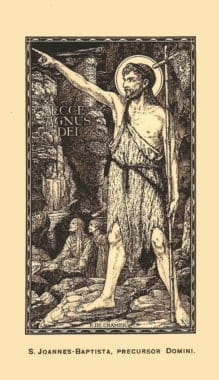 Christ the Lord Great personages announce their official visits ahead of time. This provides people with an opportunity to prepare for the visit, so as to be able to take full advantage of it. John the Baptist is Christ’s precursor, the one sent to announce his coming and get people ready to welcome him. He plays a central role in the liturgy of Advent, the season during which the Church recalls Christ’s first coming, readies itself to welcome him at his new, spiritual coming each Christmas, and looks forward to his definitive, second coming at the end of history (“Advent” derives from the Latin for “coming towards”). Luke emphasizes the incomparable importance of Christ’s coming by pointing out how Isaiah had prophesied not only the arrival of Jesus but even the appearance of the precursor, John. God had long been preparing this pivotal moment in the world’s history, and wanted to do everything possible to alert his people of its imminence.
Christ the Lord Great personages announce their official visits ahead of time. This provides people with an opportunity to prepare for the visit, so as to be able to take full advantage of it. John the Baptist is Christ’s precursor, the one sent to announce his coming and get people ready to welcome him. He plays a central role in the liturgy of Advent, the season during which the Church recalls Christ’s first coming, readies itself to welcome him at his new, spiritual coming each Christmas, and looks forward to his definitive, second coming at the end of history (“Advent” derives from the Latin for “coming towards”). Luke emphasizes the incomparable importance of Christ’s coming by pointing out how Isaiah had prophesied not only the arrival of Jesus but even the appearance of the precursor, John. God had long been preparing this pivotal moment in the world’s history, and wanted to do everything possible to alert his people of its imminence.
Although Christ has come to the earth, and although he has come to dwell in many human hearts and societies, many more have still not heard of him or welcomed him. The Lord has his eye on those and is planning advents for each one of them. With each person, he continues to use this same methodology: he sends his heralds ahead of him. We are those heralds. Every Christian is another John the Baptist, boldly drawing others’ attention to the truth and grace of Christ with his words, deeds and example. Among the many responsibilities each of us has, none is greater or more rewarding than teaming up with the Holy Spirit to prepare hearts for the Lord.
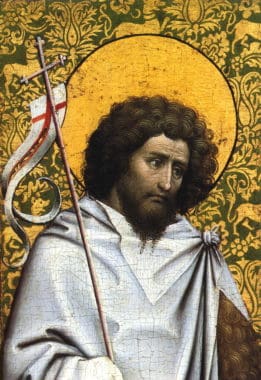 Christ the Teacher Isaiah’s prophecy, which summarizes John’s message, offers us two lessons:
Christ the Teacher Isaiah’s prophecy, which summarizes John’s message, offers us two lessons:
- First, it tells us what to do in order to get ready for Christ’s comings in our lives and those around us. We are to “prepare the way,” filling in valleys, leveling hills, straightening crooked roads, and smoothing out rough paths. The imagery comes from a typical scene in the ancient world (before concrete and asphalt highways). Roads were notoriously unreliable in Isaiah’s time, long before the establishment and spread of the Roman Empire. When a king or emperor made the rounds of his territories, his officials would travel ahead of him, making sure that the roads were safe and in good condition so that he wouldn’t be delayed and would be less vulnerable to enemy ambushes. Likewise, we are called to examine our own souls on a regular basis, especially in the penitential seasons of Advent and Lent, to see where selfishness has encroached upon our relationships with God and with other people, and where laziness and self-indulgence have worn away our self-discipline. We may need to fill in some spiritual potholes or clear away some unwelcome debris, so that the graces God has in store for us during each season of our lives will be able to stream unhindered into our hearts.
- Second, Isaiah tells us why we should prepare our hearts for Christ’s comings: “All flesh shall see the salvation of God.” He reminds us that we (the entire human family, as well as each of us individually) need God’s grace. The peace, meaning, and joy that we thirst for above all else is out of our sinful reach; we need someone to bring it us, to search us out in this desert of our earthly exile and give us the waters of eternal life. Christ is the one to do this. He always wants to bring us closer to God, closer to the fullness of life that we long for. But he won’t force his way in; we need to ready ourselves to welcome him.
Christ the Friend St. Luke begins this chapter of his Gospel curiously: with a list of names and places that seem irrelevant at first glance. Twenty centuries after the fact, we are interested in Jesus, not in tetrarchs and obsolete geography. But these details reveal something crucial about Jesus: he is not an abstract God. He weaves his action and presence into the fabric of our day-to-day lives; he takes up his stance on the crossroads of everyone’s personal history and addresses us there. And he does it because he wants to. Jesus Christ is a God who is our friend, not a faceless, aloof divine architect.
Jesus: I know where you were born and when. I remember every moment of your childhood, every one of your experiences growing up. I have been with you through it all. I will continue to be with you. Nothing about you is indifferent to me; all the circumstances of your life matter, and I am using them all to draw you closer to me, to show you your mission and guide you to its fulfillment. If you look for me, you will always find me, right there beside you.
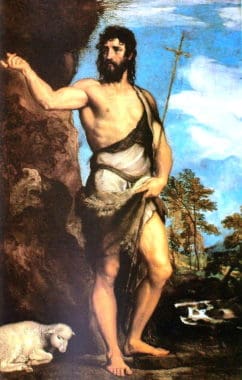 Christ in My Life Am I a good messenger, Lord? Do my words stir up noble sentiments? Do my actions clear the way for your grace? Does my manner point people to the goodness of Christ? Do I even try to help bring others a step closer to you? Life is so busy, Lord. Can I be your ambassador in the midst of my busy-ness? Of course I can, if you will show me the way…
Christ in My Life Am I a good messenger, Lord? Do my words stir up noble sentiments? Do my actions clear the way for your grace? Does my manner point people to the goodness of Christ? Do I even try to help bring others a step closer to you? Life is so busy, Lord. Can I be your ambassador in the midst of my busy-ness? Of course I can, if you will show me the way…
I know that my fears and self-centered habits obstruct your action in my life. I want to be free of them. Thank you for always being ready to forgive me and supply me with your grace. I want to take advantage of your generosity, to make use of confession and all the other ways you give me to grow, little by little but surely and constantly, into the saint you created me to be…
You teach me so clearly that the drama of salvation history is played out in the mundane reality of my life and the lives of those around me. Tune me in to this drama. Open my eyes. I want to see you in every event and every person. I want to detect and seize every opportunity to love you and make you known. You are my hope, my light, my Lord…
PS: This is just one of 303 units of Fr. John’s fantastic book The Better Part. To learn more about The Better Part or to purchase in print, Kindle or iPhone editions, click here. Also, please help us get these resources to people who do not have the funds or ability to acquire them by clicking here.
+
Art for this post on Luke 3:1-6: Cover of The Better Part used with permission. S. Joannes-Baptista, Precursor domini (St. John the Baptist, Precursor of the Lord), R. De Cramer, old undated holy card, Elizabeth Estler personal collection, used with permission. Mirror of Saint John the Baptist, Robert Campin, 1415, PD-US, author’s life plus 100 years or less; St. John the Baptist, Titian, 1542 (or 1530-32), PD-US author’s life plus 100 years or less; both Wikimedia Commons.


